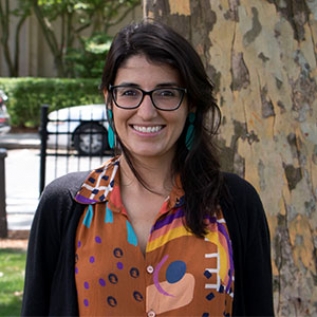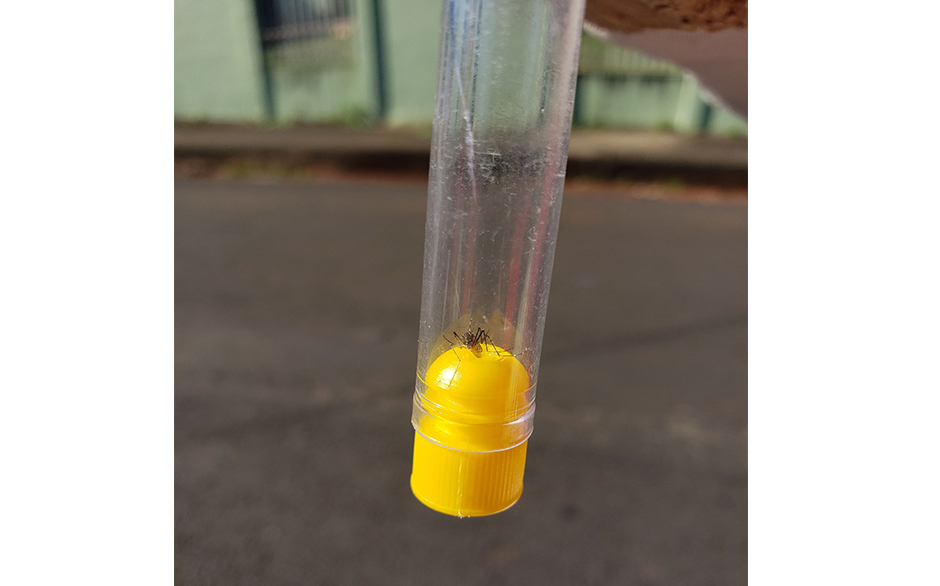
Luísa Reis CastroNetwork Member
Luísa Reis-Castro is a postdoctoral fellow in the University of Southern California’s Society of Fellows in the Humanities, hosted by USC’s Anthropology Department. She earned her Ph.D. in History, Anthropology, and Science, Technology, and Society (HASTS) from Massachusetts Institute of Technology (MIT). Drawing on her interdisciplinary training, Reis-Castro examines relations between health, science, and the environment in an interdependent, unequal world ever more affected by human activity. In August 2023, Reis-Castro will start as an Assistant Professor at USC’s Anthropology Department.
Luísa received her BA in the Social Sciences at the Universidade Federal de Minas Gerais, Brazil. She obtained both her cum laude MSc in Cultures of Arts, Science and Technology and her cum laude MA in Studies on Society, Science and Technology at Maastricht University, the Netherlands. From 2012 to 2014 she was a Junior Researcher in the LOST group, and maintains her participation in the international LOST Network.
Research
Reis Castro’s project, Vectors of Health: Epidemic Futures, Racialized Ecologies, and the Reinvention of Mosquito Science in Brazil, investigates how different national ideologies of belonging are intertwined with modes of knowledge and power that shape relations between humans, mosquitoes, and microbes. Her findings are based on two years of multi-sited fieldwork in Brazil with different research groups attempting to use the Aedes aegypti mosquito as a means of controlling the pathogens it is known to transmit (Zika, dengue, chikungunya, and yellow fever). This research reveals how these bio-technoscientific projects aimed to transform the Aedes aegypti into a newly engineered or enlisted tool to control the very pathogenic viruses these insects can transmit. Even further, Reis Castro argues that her interlocutors themselves became “vectors of health,” who reconfigured practices, materials, and knowledges to articulate different scales of action and develop a response to mosquito-borne diseases.
This research has been funded by the Wenner-Gren Foundation, the National Science Foundation, and the Social Science Research Council, as well as the MIT Martin Family Society of Fellows for Sustainability, the MIT-Brazil Program and the MIT Center for International Studies. Reis Castro’s scholarship has also received awards from the American Anthropological Association (Anthropology and Environment Section; Society for Latin American and Caribbean Anthropology; and Society for Medical Anthropology’s Special interest group Critical Anthropology for Global Health); the American Sociological Association (Animals and Society Section); the World Association for the History of Veterinary Medicine; and the History of Science Society (Forum for the History of Health, Medicine, and the Life Sciences).
Publications
- Reis-Castro, Luísa (2021) "Becoming Without Rearing and Releasing Transgenic Mosquitoes in Brazil." in Engagement. Rappaport Prize Finalists. → https://aesengagement.wordpress.com/2021/02/23/becoming-without-rearing-and-releasing-transgenic-mosquitoes-in-brazil/
- Reis-Castro, Luísa (2021) "Becoming Without: Making Transgenic Mosquitoes and Disease Control in Brazil." in Environmental Humanities 13 (2): 323-347. → https://doi.org/10.1215/22011919-9320178
- Reis-Castro, Luísa (2020) "Mosquitoes, Pathogens, and that which divides Brazil." in Environmental History Now. → https://envhistnow.com/2020/09/10/mosquitoes-pathogens-and-that-which-divides-brazil/
- Reis-Castro, Luísa and Carolina Nogueira (2020) "Uma Antropologia da Transmissão: Mosquitos, Mulheres e a Epidemia de Zika no Brasil [An Anthropology of Transmission: Mosquitoes, Women, and the Zika Epidemic in Brazil]." in ILHA Revista de Antropologia 22 (2): 21-63. → https://periodicos.ufsc.br/index.php/ilha/article/view/67583
- Reis-Castro, Luísa (2020) "The Vector, the Viruses, and the 'Healthy World': Placing Aedes aegypti in Brazil." in Platypus, the Committee on the Anthropology of Science, Technology, and Computing Blog. → http://blog.castac.org/2020/09/the-vector-the-viruses-and-the-healthy-world-placing-aedes-aegypti-in-brazil/
- Reis-Castro, Luísa and Carolina Nogueira (2020) "COVID-19 e Zika: Narrativas epidêmicas, desigualdades sociais e responsabilização individual [COVID-19 e Zika: Epidemic narratives, social inequalities, and individual responsibilization]." in Cientistas sociais e o Coronavírus , edited by Miriam Pillar Grossi and Rodrigo Toniol, 632-636. Florianópolis: Tribo da Ilha. → http://anpocs.com/images/stories/boletim/boletim_CS/livro_corona/Ebook_Cientistas_Sociais_Coronav%C3%ADrus_baixa.pdf
- Reis-Castro, Luísa and Carolina Nogueira (2020) "Who Should Be Concerned? Zika as an Epidemic About Mosquitoes and Women (and some reflections on COVID-19)." in Somatosphere, Histórias of Zika series. → http://somatosphere.net/2020/zika-epidemic-mosquitos-women.html/
- Reis-Castro, Luísa (2019) "Histórias of Zika." in Somatosphere. → http://somatosphere.net/2019/historias-of-zika.html/
- Lopes, Gabriel and Luísa Reis-Castro (2018) "A Vector in the (Re)Making: A History of Aedes aegypti as Mosquitoes that Transmit Diseases in Brazil." in Framing Animals as Epidemic Villains: Histories of of Non-Human Disease Vectors , edited by Christos Lynteris, 147-175. Cham: Palgrave. → https://www.palgrave.com/gp/book/9783030267940#aboutAuthors
- Reis-Castro, Luísa (2017) "The Underworlds Project and the 'Collective Microbiome': Mining Biovalue from Sewage." in Bioeconomies Life, Technology, and Capital in the 21st Century , edited by Vincenzo Pavone and Joanna Goven, 105-128. Cham: Palgrave.
- Boëte, Christophe, Uli Beisel, Luísa Reis Castro, Nicolas Césard, and R Guy Reeves (2015) "Engaging scientists: An online survey exploring the experience of innovative biotechnological apporaches to controlling vector-borne diseases." in Parasites & Vectors 8 (1): 414.


